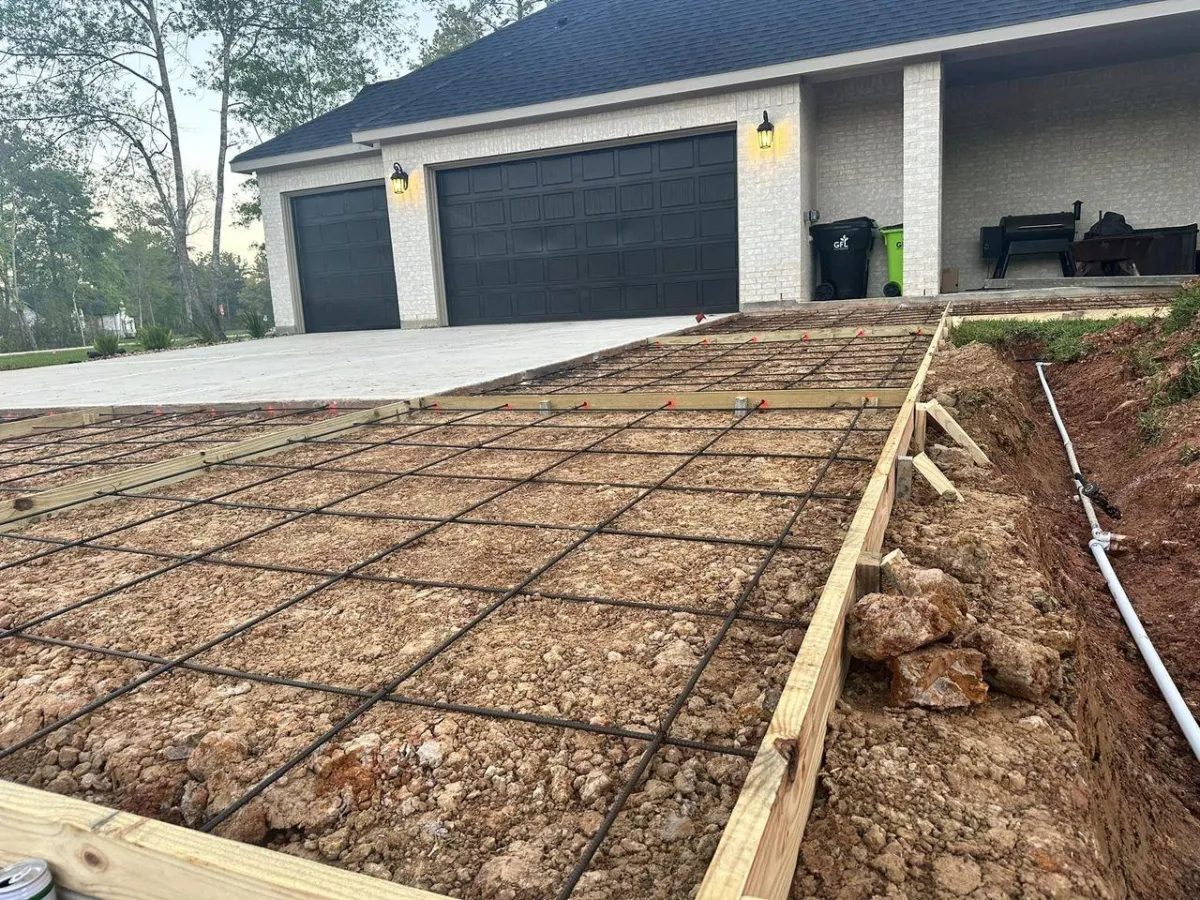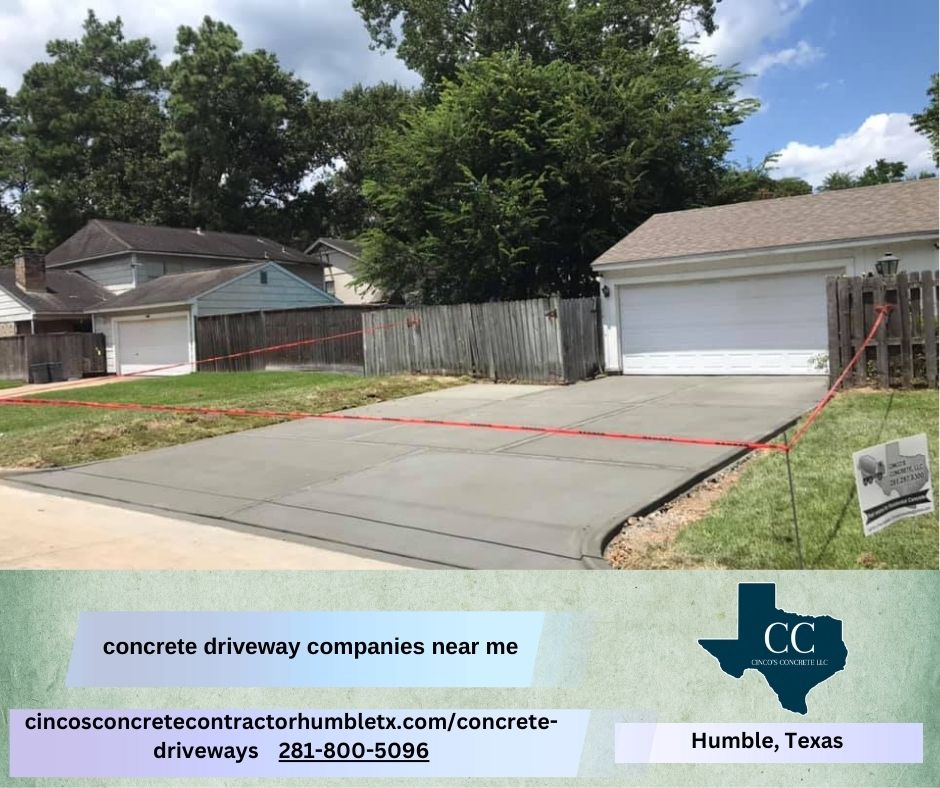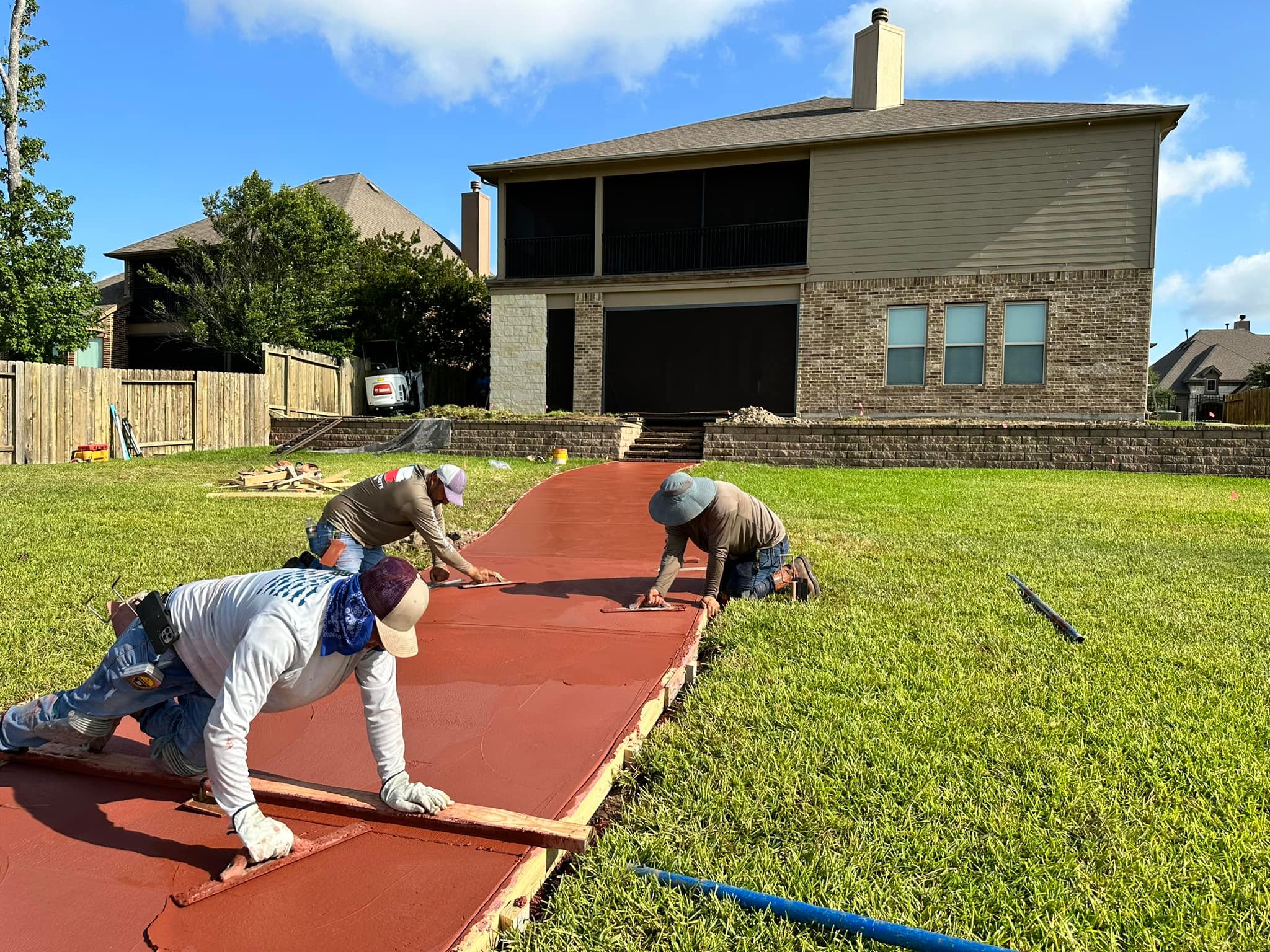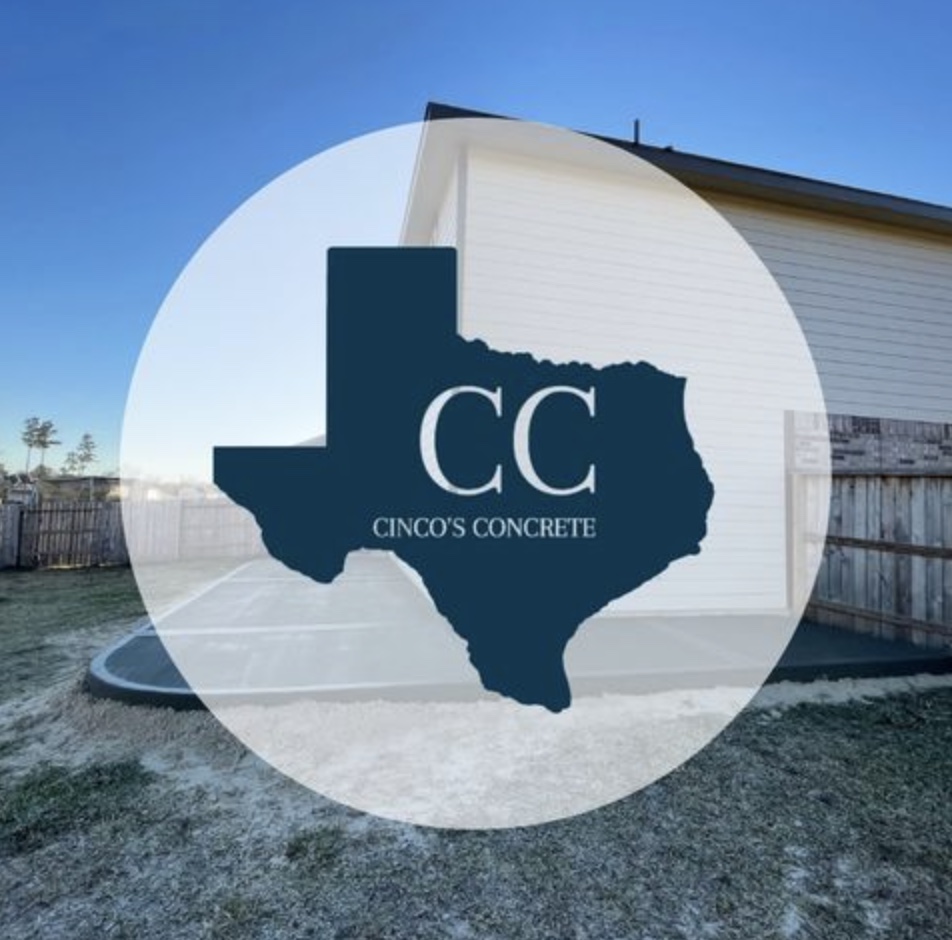
How much does a 40x60 concrete slab cost?
How Much Does a 40x60 Concrete Slab Cost?
A 40x60 concrete slab represents a substantial investment. This large size, totaling 2400 square feet, offers many possibilities. It could serve as an expansive commercial pad. It might also be a very large multi-car garage floor. Or a significant outdoor recreational area.
Understanding the financial outlay for such a project is crucial. The cost is not a single, fixed number. It is influenced by a complex interplay of factors. These variables impact the final expense significantly.
This comprehensive guide will illuminate the pricing process. We will explore the key elements that drive the cost. The typical installation steps will be detailed. Potential hidden expenses will also be discussed.
Our aim is to provide a clear understanding. This knowledge will empower you. It helps you make informed decisions. It ensures your concrete project meets all expectations. For precise figures, always seek a personalized estimate. Local professionals, such as Cincos Concrete in Humble, Texas, offer this expertise.
Core Factors Determining a 40x60 Concrete Slab's Cost
The price of a 40x60 concrete slab varies widely. Many essential factors contribute to its final cost. Each element plays a distinct and important role.
Slab Thickness: A Primary Cost Driver
The chosen thickness of your concrete surface is paramount. It directly correlates with the volume of concrete required. This has a significant impact on the material expense. For instance, a 4-inch thick slab is common for light-duty applications. This includes large patios or sidewalks.
However, a 6-inch thick slab necessitates 50% more concrete. This dramatically increases material costs. It's essential for areas expecting heavy vehicle traffic. This includes large parking spaces or equipment pads. An 8-inch thickness might be needed for very heavy commercial loads. Each additional inch of depth adds substantial cost.
The load requirements of your project dictate the optimal thickness. Choosing correctly prevents premature failure. It ensures long-term durability.
Concrete Mix Strength (PSI)
Concrete strength is measured in Pounds per Square Inch (PSI). Standard residential slabs typically use 3000-4000 PSI concrete. This provides adequate durability for most needs. However, specific projects may demand higher strength.
Mixes of 5000 PSI or more are available. These are designed for heavy-duty commercial applications. They are used where extreme loads are anticipated. Higher PSI concrete utilizes a specialized mix design. It often includes higher-quality aggregates. This naturally increases the material cost per cubic yard. It represents an investment in superior structural integrity.
Admixtures can also affect cost. These might be used for faster curing. They can improve workability. Some enhance freeze-thaw resistance.
Site Preparation and Groundwork
This foundational phase is critical for any large concrete project. It significantly impacts the longevity of the finished surface. For a 40x60 slab, extensive site preparation is required. It begins with clearing the area. This involves removing all vegetation. Any existing structures or old paving must be demolished.
Next comes meticulous excavation. The ground needs to be dug to the precise depth. This accommodates both the concrete slab and the sub-base material. Proper grading is then established. This ensures effective water runoff. It prevents pooling. This protects the slab from moisture damage.
A stable, compacted sub-base is then installed. This layer, typically gravel or crushed stone, provides uniform support. It prevents settling. It also minimizes cracking over time. In areas with challenging soil conditions, like expansive clay found in Humble, Texas, specialized groundwork is essential. This might involve additional soil treatments. It could require deeper excavation. This adds to the overall preparation cost.
Surface Finish and Decorative Options
Beyond a basic appearance, concrete offers a spectrum of finishes. A standard broom or trowel finish is the most economical. It provides a simple, functional, and slip-resistant surface. However, decorative options significantly enhance aesthetic appeal. These choices can elevate the cost per square foot substantially.
Stamped concrete replicates the look of natural materials. It can mimic stone, brick, or even wood planks. This involves pressing textured mats into wet concrete. It requires specialized tools. Highly skilled artisans are also necessary. This increases both labor and material costs.
Stained concrete introduces color. Acid stains react chemically with the concrete. This creates unique, translucent effects. Water-based stains sit on the surface. They offer vibrant, opaque colors. Both options allow for personalization. They add to the overall expense.
Exposed aggregate finishes reveal the embedded stones or pebbles. This creates a visually rich, textured surface. It provides excellent slip resistance. This option requires specific techniques. It adds to the labor complexity. Each decorative choice transforms the appearance. It contributes to a higher price point for the 40x60 slab.
Reinforcement Methods
Reinforcement is crucial for large concrete slabs. It significantly enhances their strength. It helps prevent and control cracking. This is vital for long-term durability.
Wire mesh is a common, cost-effective option. It provides basic crack control. It helps hold the concrete together.
Rebar (steel reinforcing bar) offers superior structural integrity. It is essential for slabs supporting heavy loads. This includes commercial parking areas. It is also used for building foundations. Rebar is strategically placed. It’s tied to create a robust grid. This provides excellent load transfer. It prevents sections from separating.

Fiber reinforcement can be added directly to the concrete mix. This distributes tiny fibers throughout the slab. It provides uniform, microscopic crack control. It often complements wire mesh or rebar. The type and amount of reinforcement used directly impact the material cost. It also affects the labor involved in its installation.
Geographic Location & Local Market Rates
The location of your project plays a significant role in its cost. Construction costs vary by region. This includes both labor wages and material prices. For a 40x60 concrete slab in Humble, Texas, costs will differ from other areas. Local economic conditions influence these rates. The supply chain dynamics for concrete and aggregates are also a factor.
Proximity to concrete batch plants affects delivery fees. Longer hauling distances mean higher transportation costs. A local contractor understands these specific market costs. They have established relationships with local suppliers. This often leads to more competitive pricing for materials.
Accessibility of the Project Site
How easily can heavy equipment access your construction site? For a large 40x60 concrete slab, this is a critical consideration. Limited access increases logistical challenges. Concrete trucks and pumps need ample space. If the site is hard to reach, it impacts efficiency.
Obstacles like steep slopes or narrow passages, or existing structures add complexity. These factors can increase labor hours. They may require specialized, smaller equipment. This contributes to a higher overall project cost. A flat, open site with easy access is always more economical to pour.
Detailed Cost Breakdown: Estimated Ranges for a 40x60 Concrete Slab
Understanding estimated price ranges for different concrete types helps in budgeting. These figures include materials and installation for a 2400 sq ft area. Keep in mind that precise quotes require an on-site evaluation.
Standard Gray Concrete (4-inch thick)
This is the most economical choice for a 40x60 slab. It provides a functional, durable surface.
Estimated Cost: $4 - $8 per square foot.
Total for 2400 sq ft: $9,600 - $19,200.
What's Included: This typically covers basic materials. It includes a standard concrete mix. Minor reinforcement, like wire mesh, is often part of this. Basic site preparation is also included. This covers excavation and a compacted base. Labor for pouring, spreading, and a simple broom or trowel finish is also part of this. This thickness is suitable for light foot traffic areas. It can also work for very light vehicle use, such as small sheds or light residential parking.
Enhanced Strength Concrete (6-inch thick)
For increased strength and durability, a thicker slab is required. This is often preferred for a 40x60 area.
Estimated Cost: $6 - $12 per square foot.
Total for 2400 sq ft: $14,400 - $28,800.
When Necessary: This thickness is highly recommended for areas expecting heavy vehicle traffic. This includes large parking areas for multiple cars. It's essential for RV pads. Light commercial loading zones benefit from this added depth. Building foundations and industrial floors also often require this thickness. The added cost comes from the increased concrete volume. It also reflects more complex labor for handling heavier forms and pours. This often includes rebar reinforcement as standard for enhanced structural integrity.
Decorative Concrete Options
Decorative finishes transform a basic concrete slab into an aesthetic feature. These options significantly increase the cost.
Stamped Concrete: This finish mimics various textures. It replicates the look of natural stone, brick, or wood. The cost typically ranges from $10 - $20+ per square foot. Total for 2400 sq ft: $24,000 - $48,000+. The complexity of the chosen pattern influences the price. Multiple colors and intricate designs add to the expense.

Stained Concrete: This applies a translucent or opaque color to the surface. Acid stains react chemically with the concrete. This creates unique, variegated patterns. Water-based stains offer a wide range of solid colors. The cost usually ranges from $6 - $15 per square foot. Total for 2400 sq ft: $14,400 - $36,000. It offers a customized look.
Exposed Aggregate: This finish reveals the natural beauty of the stones. It creates a textured, slip-resistant surface. It typically costs $8 - $16 per square foot. Total for 2400 sq ft: $19,200 - $38,400. This is a durable and visually appealing option. It provides a natural, rustic appearance.
Specialized Concrete (e.g., Permeable)
Certain specialized concrete types offer unique benefits. They come at a higher price point due to specialized materials and installation.
Permeable Concrete: This eco-friendly option allows water to filter through the slab. It reduces stormwater runoff. It helps recharge groundwater. It costs typically $12 - $25+ per square foot. Total for 2400 sq ft: $28,800 - $60,000+. This is often chosen for large parking areas. It is also used in specific environmental initiatives. Its installation is more specialized. It requires specific base materials and precise techniques. This contributes to its higher investment cost.
The Professional Installation Process for a 40x60 Concrete Slab
Pouring and finishing a 40x60 concrete slab is a complex operation. It requires careful coordination and expert execution. A professional concrete contractor follows a rigorous, multi-stage process. This ensures the highest standards of quality and longevity for the finished surface.
Initial Consultation & Comprehensive Planning
The project begins with a detailed on-site assessment. The contractor meticulously evaluates the terrain. They identify any existing structures or obstacles. Drainage patterns and soil conditions are carefully assessed. For a large slab, every detail matters. Client needs, aesthetic preferences, and intended use are discussed. Precise measurements of the 2400 sq ft area are taken. A comprehensive project plan is then developed. This includes a detailed scope of work. It outlines material specifications. A realistic timeline is also established.
Permitting and Regulatory Compliance
For a large concrete slab of this size, obtaining necessary permits is almost always required. Your contractor will guide you through this process. This includes navigating local municipal requirements in Humble, Texas. It also involves adhering to specific zoning laws. Compliance with stormwater management regulations is critical. Permits ensure the project meets safety standards. They adhere to all building codes. This prevents potential legal issues or fines down the line. It also ensures quality inspections.
Extensive Site Preparation
This phase is the backbone of the entire project. Its thoroughness dictates the slab's durability. Any existing pavement or topsoil is carefully removed. The area is then extensively excavated to the precise depth. This accommodates the concrete thickness. It also makes room for the sub-base material.

Meticulous grading is performed to establish proper slopes. This ensures effective water runoff away from your property. It prevents any water pooling on the large surface. A robust aggregate sub-base, typically gravel or crushed stone, is then laid. For a 40x60 slab, this base layer needs to be substantial. It must be uniformly compacted using heavy machinery. This creates an unyielding, stable foundation. It prevents future settling. It also greatly minimizes potential cracking.
Formwork & Reinforcement Setup
Once the sub-base is complete, forms are meticulously constructed. These define the exact perimeter of the 40x60 concrete slab. For such a large area, these forms must be extremely sturdy. They hold the massive volume of wet concrete securely in place. They are precisely leveled. This ensures a consistent slab thickness across the entire footprint.
Next, the chosen reinforcement is installed. This could be a grid of steel rebar or heavy-gauge wire mesh. Sometimes both are used for enhanced strength. Reinforcement is meticulously placed and tied. It ensures it remains properly positioned during the concrete pour. This critical step provides tensile strength. It helps the concrete resist cracking due to expansion, contraction, or heavy loads.
Strategic Concrete Pouring
This is the most critical and time-sensitive phase of the installation. For a 40x60 concrete slab, pouring a large volume of concrete quickly and efficiently is paramount. This requires careful logistics. Multiple ready-mix concrete trucks are typically coordinated. Concrete pumps may be used to deliver the mix efficiently to all areas of the slab.
The concrete is poured uniformly within the forms. It is then carefully spread and leveled using specialized screeding equipment. Vibrators are often employed. They remove air pockets. This ensures a dense, homogenous slab. The team must work swiftly and cohesively. This minimizes cold joints and ensures a seamless surface.
Expert Finishing Techniques
Once the concrete has been poured and roughly leveled, the finishing process begins. This phase is crucial for achieving the desired surface quality and aesthetic. Skilled finishers use bull floats to smooth the surface. They perform preliminary leveling. Power trowels or hand trowels are then used. They create a dense, hard, and smooth finish.

For decorative options, specialized techniques are applied. Stamping tools are pressed into the setting concrete. This creates patterns. Stains are meticulously applied. Exposed aggregate is achieved by washing away the top layer of cement paste. Achieving a uniform and high-quality finish over such a large area requires immense skill and experience.
Critical Curing and Sealing Procedures
Proper curing is absolutely vital for the long-term strength and durability of concrete. It involves maintaining the correct moisture levels. This allows the concrete to fully hydrate. This process continues for several days or even weeks. Curing compounds are often sprayed on the surface. Wet coverings like burlap or plastic sheeting may also be used. This controlled hydration prevents rapid drying. Rapid drying leads to shrinkage cracks and reduced strength.
After the concrete has properly cured, sealing is highly recommended. This protective layer guards the surface against moisture penetration. It resists stains from oils and chemicals. Sealing also enhances resistance to abrasion and extends the aesthetic appeal of the large slab.
Post-Installation Quality Checks & Site Cleanup
Throughout the entire installation process, stringent quality control measures are maintained. The contractor ensures adherence to all specifications. This includes concrete mix design, thickness, and finish quality. After the concrete has sufficiently set and cured, the site undergoes a thorough cleanup. All forms are removed. Any excess materials, debris, or equipment are hauled away. Any areas of surrounding landscaping that were disturbed are tidied up. A final inspection confirms that the project meets all agreed-upon standards. This ensures the client receives a high-quality, durable concrete surface.
Considering Hidden Costs and Long-Term Value
While an initial quote covers many aspects, several factors can lead to unforeseen expenses. Budgeting for these ensures a smoother project for your 40x60 concrete slab. Understanding long-term implications is also crucial.
Old Pavement Demolition & Removal
If your project involves replacing an existing large paved area, demolition adds a significant cost. Breaking up and hauling away old asphalt or concrete is labor-intensive. It requires specialized equipment. Disposal fees can be substantial. For a 2400 sq ft area, this can range from $2 to $8 per square foot. This translates to $4,800 to $19,200. The type and thickness of the existing material impact this expense.
Unforeseen Subsurface Conditions
During excavation, unexpected ground issues can arise. This might include encountering large boulders. Buried utility lines not marked on plans could be found. Unstable soil conditions, such as overly expansive clays or highly saturated ground, are also possibilities. These require additional excavation. They may necessitate specialized soil stabilization techniques. Such issues add to both labor and material costs. They can also cause significant project delays. A thorough initial geotechnical assessment helps mitigate some of these surprises, but not all are detectable.
Major Landscaping Restoration Needs
A large concrete project like a 40x60 slab can inevitably impact surrounding landscaping. While basic cleanup is usually included, extensive restoration may not be. If irrigation lines are cut, or large sections of lawn are damaged, you'll need to budget separately. This includes re-sodding. Replenishing mulch. Repairing garden beds. This ensures your entire property looks its best after the installation.

Expedited Project Deadlines
If you need the concrete slab completed on an aggressive or compressed timeline, be prepared for higher costs. Contractors may charge a premium for expedited work. This covers overtime pay for crews. It can also include rush orders for material deliveries. Planning well in advance helps avoid these additional surcharges. It allows for a more efficient and cost-effective project schedule.
Complex Drainage Systems
For a large, flat concrete slab, proper drainage is critical. This prevents water from pooling. It protects the integrity of the surface. If the natural slope is insufficient, complex drainage solutions may be required. This could involve extensive trench drains, catch basins, or elaborate French drain systems. These installations are essential for long-term durability. However, they will add significantly to the overall project cost.
Ongoing Maintenance & Repair
While concrete is known for its durability, it is not entirely maintenance-free. Regular cleaning is necessary to maintain its appearance. Re-sealing the surface every few years is highly recommended. This protects against moisture penetration. It resists stains and wear. Small crack repairs might be needed over its lifespan. Budget for these ongoing maintenance tasks. They ensure the longevity and continued aesthetic appeal of your significant concrete investment.
Contractor Warranty & Guarantees
A reputable concrete contractor provides warranties on their workmanship. They also guarantee the quality of the materials used. While not a direct upfront cost, understanding these guarantees is vital. They offer crucial protection against premature failure. They provide peace of mind for your substantial investment. Always inquire about the specifics of the warranty before finalizing any contract. It safeguards your interests.
The Importance of a Local Concrete Contractor for Large Slabs
Choosing the right contractor is paramount for a large concrete project. A local expert offers distinct advantages. This is particularly true for projects in areas like Humble, Texas. They understand unique regional considerations.
Deep Knowledge of Local Conditions
A local concrete contractor possesses invaluable insight. They understand the specific soil conditions in the Houston area. This includes managing expansive clay soils. They know how these soils react to moisture. This knowledge is critical for proper subgrade preparation. It helps prevent future cracking or settling of the large concrete slab.
They are also familiar with local climate patterns. They understand how high humidity and temperature swings affect concrete curing. This expertise ensures the correct concrete mix design. It also means appropriate curing techniques are used. They are well-versed in Humble's building codes. They understand local zoning laws. They know permit requirements. This ensures your project complies from the start.
Proven Expertise in Large-Scale Projects
A reputable local contractor has a strong track record. They bring extensive experience to your project. They have likely completed numerous large concrete pours. They have worked on slabs similar to your 40x60 area. Their experience includes managing the logistics of large volume pours. They can offer valuable design advice. They anticipate potential challenges unique to bigger jobs. Their skilled crews ensure high-quality workmanship. This results in a durable, aesthetically pleasing concrete surface.
Established Local Relationships
Local contractors have cultivated relationships. They work closely with local material suppliers. This often leads to more competitive pricing for bulk materials. It ensures timely delivery of large concrete orders. It also means access to quality aggregates. Their knowledge of local resources contributes to project efficiency. It can reduce overall costs. It also streamlines the logistics of your large concrete project. They also understand local regulatory bodies.
Enhanced Accountability and Support
Local businesses often rely heavily on their community reputation. They are more accountable to their clients. They prioritize customer satisfaction. This typically translates to better communication throughout the project. They offer more personalized service. They are readily accessible for any post-installation questions or support. This local connection fosters trust. It provides greater peace of mind for your significant investment.
Maximizing Your Investment in a 40x60 Concrete Slab
A 40x60 concrete slab is a significant asset. It adds substantially to your property's functionality. It also enhances its overall appeal. Understanding how to maximize the value derived from this investment is crucial.
Long-Term Durability and Minimal Maintenance
High-quality concrete, when installed properly, offers exceptional durability. It can withstand heavy loads and varying weather conditions. This makes it a long-lasting solution for many applications. This inherent longevity minimizes the need for frequent repairs or costly replacements. It represents a sound, long-term investment. Choosing the right thickness and appropriate reinforcement plays a critical role in achieving this durability.
Significant Property Value Enhancement
A well-designed and expertly installed concrete slab significantly boosts property value. For residential properties, a new, expansive paved area enhances curb appeal. It creates a modern, clean look. For commercial properties, a durable and functional concrete pad improves operational efficiency. It signals quality to clients. This enhancement can be a key factor in resale value. It showcases the property's maintenance and utility.
Versatility for Diverse Uses
The generous dimensions of a 40x60 concrete slab offer remarkable versatility. It can be designed for a vast array of purposes. This includes large vehicle parking areas. It can serve as a robust foundation for a new structure. It's ideal for vast outdoor entertainment zones. Or it could be a specialized commercial work pad. This adaptability ensures the investment serves multiple present and future needs.
Get a Tailored Estimate from Humble's Concrete Professionals
This guide provides extensive information and general cost estimates. However, the precise cost for your specific 40x60 concrete slab project requires a detailed, on-site assessment. Factors like unique site conditions, your chosen finish, specific thickness requirements, and local regulations all play a role. These can significantly impact the final price.
For a concrete project as substantial as a 40x60 slab, trusting experienced professionals is paramount. Cincos Concrete has proudly served Humble, Texas, and the greater Houston area for over ten years. They specialize in delivering high-quality concrete solutions. Their expertise ensures your slab will possess exceptional durability, optimal functionality, and appealing aesthetics. They are committed to precise craftsmanship. This guarantees your significant investment will stand strong for many decades to come.
Do not leave such a crucial concrete project to chance. For a precise, no-obligation estimate tailored to your unique needs, contact the local experts. Cincos Concrete understands the Humble market best. They will provide transparent pricing. They will offer expert guidance throughout the entire process.
Contact Cincos Concrete today for a FREE consultation and personalized estimate:
Phone: 281-800-5096
Website: https://cincosconcretecontractorhumbletx.com/concrete-driveways
Conclusion
The cost of a 40x60 concrete slab is influenced by many variables. These include desired thickness, chosen finish, and the extent of site preparation. Material choices range from basic grey to elaborate decorative options. Each carries a different price point. Understanding these factors is key to effective budgeting for your large concrete project.
A professional, local concrete contractor is essential for success. They expertly navigate complexities. They ensure high-quality installation. This leads to a durable and attractive concrete surface. Your investment in this substantial concrete area adds significant value to your property. It provides long-lasting functionality. For reliable service and exceptional results in Humble, Texas, partner with Cincos Concrete.
